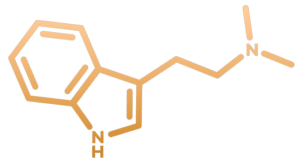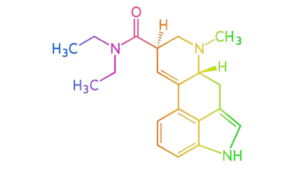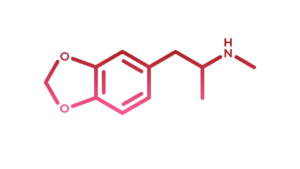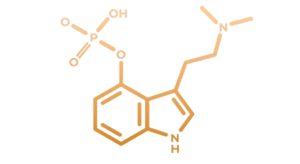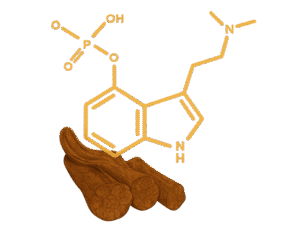The possibilities of the ketamine analogue
The ketamine analogue is a legal alternative to ketamine that is very similar in its effects to the original. This drug is not covered by the Opium Act and can therefore be used during sessions without legal restrictions. Unlike medical ketamine use, which is only available under strict conditions and with referral, this analogue is not considered official medical treatment. This makes it possible to book a session with this drug without the need for a doctor's referral. This opens the door for anyone who wants to experience what a dissociative session can do in terms of self-examination, processing and personal growth.
Our Ketamine offer
There are several ways to get in touch with the effects of this ketamine analogue. Most people choose to book a private session with support before, during and after from a Triptherapie therapist. Another option is to participate in a group session with medium to high dosage or an integration session with low psycholytic dosage.
Ketamine and its difference from the analogue
Ketamine is known worldwide as a dissociative agent used in medicine since the 1960s, including as an anaesthetic and, more recently, as a treatment for therapy-resistant depression. The legal analogue of ketamine is very similar to the original in many ways, both in perception and mechanism of action.
In practice, users find that ketamine works briefly and powerfully, while the analogue often comes on gradually and works longer. For therapeutic sessions, the gentler emergence and longer duration of action is an advantage. Both drugs can lead to deep dissociative experiences and valuable insights.
The naming
Both ketamine and its analogues are known by a wide range of names. Besides the official names such as Ketalar, Ketanest and Ketaset, many informal terms are also used, including Ketamine, K, Ket, Kitty, Special K, Cat Tranquiliser, Vitamin K, Purple and Jet. These diverse names highlight the wide awareness and use of this type of drug.
What do you experience while taking ketamine?
In many ways, an experience with a ketamine analogue resembles that of ketamine itself, as both drugs belong to the same family of dissociatives and function largely through the same mechanism of action. During such an experience, consciousness may detach from the body and immediate environment, which is often described as dissociation.
People who experience a session with a ketamine analogue often report that the experience feels like stepping out of ordinary reality for a moment. This can range from a mild state of relaxation, where thoughts gain more space and emotions are more palpable, to a deep shift in consciousness where the body is barely perceived. Time may feel distorted, the sense of space may change and visual or inner images may appear, sometimes experienced spiritually or symbolically.
Ketamine therapy
Ketamine is used therapeutically in several ways today. In mainstream medicine, it has become known for its use in therapy-resistant depression, where controlled administration can provide relief from severe gloom and suicidal thoughts within hours. Ketamine is also investigated and sometimes used in anxiety disorders, PTSD and chronic pain. Outside the medical context, a legal analogue of ketamine can be used within guided sessions aimed at personal growth, emotional processing and spiritual self-examination.
What is special about ketamine is that it belongs to the dissociative drugs. Dissociation involves temporarily disconnecting the normal connection between body, environment and thought processes. This can actually be therapeutically valuable. Whereas a person in a normal state often remains stuck in brooding, ruminating on negative thoughts or endlessly reliving traumas, dissociation causes there to be distance arises. From that distance, one can observe painful emotions or memories without getting completely sucked in.
In addition, dissociation often opens the door to a different perspective: thoughts and emotions become less rigid, allowing new insights to emerge. Some people experience looking at their problems from the outside, with more compassion and clarity. This can help break deep-seated patterns and create space for recovery and change.
In short, ketamine can be therapeutic because its dissociative nature provides temporary relief from mental and emotional charge, making room for emotional processing, reappraisal of experiences and breaking entrenched thought patterns.
Frequently asked questions about ketamine
Ketamine and its analogues are not for everyone. At Triptherapie, we take on new customers if they have the complete intake. This allows us to check for contraindications and inform about alternatives if necessary.
While ketamine and legal analogues offer interesting possibilities, there are circumstances and combinations where use is unsafe or strongly advised against. People with a psychosis susceptibility (such as schizophrenia), a severe heart disease or unstable high blood pressure are at increased risk. Also during pregnancy and breastfeeding use is discouraged.
In addition, there are important interactions with other drugs that can be dangerous. Combining ketamine or an analogue with the following drugs is strongly discouraged:
Amphetamines (such as speed or dexamphetamine)
Cocaine
Benzodiazepines (such as diazepam, oxazepam, alprazolam)
MAOIs (MAOIs)
Trazodon
Tramadol
Alcohol
GHB
GBL
- Opioids (such as morphine, oxycodone, fentanyl)
These combinations can lead to dangerous side effects, such as respiratory depression, heart problems, seizures or unpredictable changes in consciousness.
Therefore, it is very important to openly and honestly discuss all medication and substance use during the intake, so that a session can take place safely.
A k-hole is the name for a very deep dissociative experience that can occur when using a high dose of ketamine or a similar analogue. In this state, the connection to one's own body and immediate environment becomes largely disconnected. Many people describe this as a complete out-of-body experience in which one feels like entering another dimension, space or state of consciousness.
Characteristics of a k-hole can include loss of physical control, the feeling of no longer having a body, an altered or absent perception of time, intense inner or visual experiences and sometimes existential or spiritual insights. For some, it feels like a near-death experience or a journey through abstract worlds.
Although a k-hole is sought by some users because of its intensity and possible insights, it can also be confusing, overwhelming or even frightening. The loss of control and lack of grip makes a k-hole better sought only in a safe, supervised setting.
General FAQ
Should you be looking for another question and answer? You can then also choose to use the search function on our site, consult the frequently asked questions section, ask a question via our forum or ask our chatbot Trippy.
Recent Q&A questions
Psychedelic session for clients from abroad
How do I book psychedelic therapy in the Netherlands when coming from abroad? What are the possibilities?
NPS law and MDMA analogues
Which analogues of MDMA will become illegal from 1 July 2025 with the entry into force of the amended opium law?
